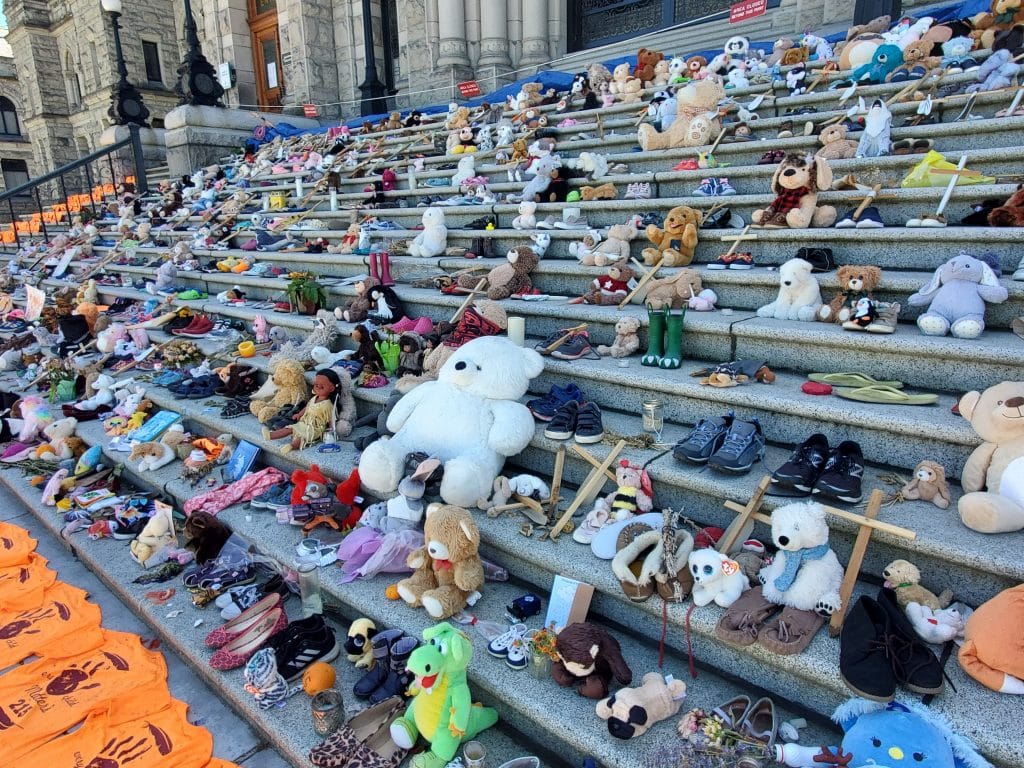This past week laid bare the dark history of Canada’s colonial past: 215 bodies of Indigenous children were uncovered on the grounds of a former residential school in Kamloops, British Columbia, on the territory of the Tk’emlúps te Secwépemc peoples. The horrific realities seized even the attention of the international media and government flags have been lowered to mark the tragic discovery.
We take pause in our work on drug policy in Canada to once again remember that our current drug policies have colonial and racist roots and that our work ahead is to stand with and support Indigenous Peoples and work together to create policies that end the discrimination, oppression and other devastating consequences so many experience.
The discovery of these unmarked graves makes clear what Canadians must acknowledge: that Canada is founded on and continues to operate through colonial, systemically racist systems that continue to cause significant harm to Indigenous communities. Make no mistake, this was genocide. Grand Chief Stewart Phillip, of the Union of British Columbia Indian Chiefs, said to the media,
“This is the reality of the genocide that was, and is, inflicted upon us as Indigenous Peoples by the colonial state. Today we honour the lives of those children, and hold prayers that they, and their families may finally be at peace.”
The memory of this atrocity and commitment to reconciliation must not fade with the passage of time; and governments must step up and fully commit to justice for and self-determination of Indigenous communities.
As a coalition committed to transforming Canada’s drug policies to those that support and empower Indigenous Peoples, we are committed to working with Indigenous organizations to dismantle a drug policy framework that has had such devastating impacts.
At this time, we encourage you to support Indigenous organizations working towards transformation and healing for the survivors of residential schools and ask you to consider donating to the Indian Residential School Survivor Society, an organization that has been providing support for survivors for over 20 years in British Columbia.

Along with voicing support and outrage on social media, we can write to our Members of Parliament and show our commitment by supporting Indigenous-led organizations who are best positioned to provide healing during this traumatic time.
Let this not be a flashpoint moment that dims with the next “big news story,” and let us become even more committed to having difficult conversations with our friends and families about what it means to truly seek reconciliation. Silence and apathy must end here as we move towards justice for and reconciliation with Indigenous communities across Canada.
